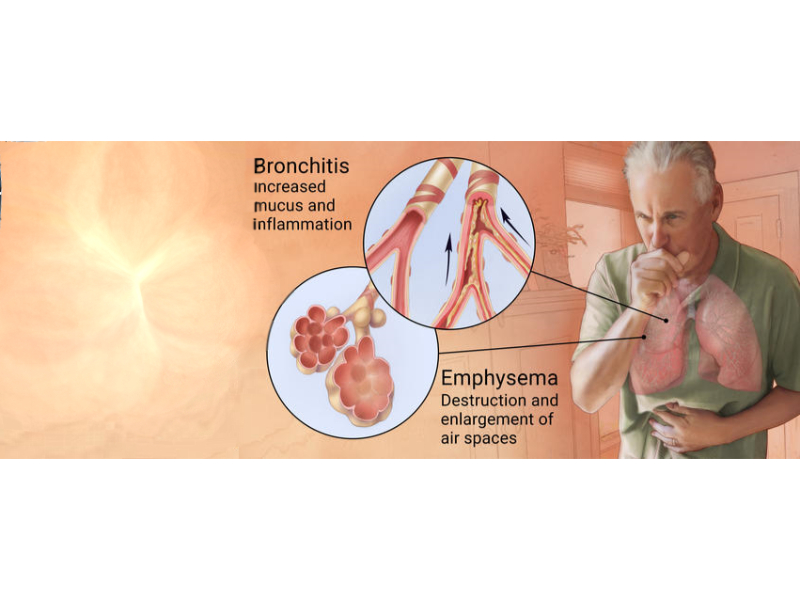Emphysema is a chronic, progressive lung disease, which is classified under chronic obstructive pulmonary disease (COPD). It primarily affects the alveoli, the tiny air sacs in the lungs, where gas exchange of oxygen and carbon dioxide takes place. Over time, the inner walls of the alveoli weaken and rupture, creating larger air spaces instead of many small ones. This reduces the surface area of the lungs and, in turn, the amount of oxygen that reaches the bloodstream. Emphysema is a significant public health concern due to its impact on breathing and quality of life.
Causes
The leading cause of emphysema is long-term exposure to airborne irritants, including:
- Tobacco smoke: Smoking is the most significant risk factor for developing emphysema. The risk increases with the number of years and amount of tobacco smoked.
- Air pollution: Long-term exposure to air pollutants can irritate and damage the lungs.
- Chemical fumes and dust: Exposure to certain workplace chemicals and dust can contribute to the development of emphysema.
- Genetic factors: A deficiency in the protein Alpha-1 Antitrypsin (AAT) can lead to the development of emphysema, even in individuals who have never smoked.
Symptoms
Symptoms of emphysema develop slowly over the years and may include:
- Shortness of breath, especially during physical activities
- Wheezing
- A chronic cough that may produce mucus
- Tightness in the chest
- Increased susceptibility to respiratory infections
Diagnosis
Diagnosis of emphysema usually involves a combination of medical history, physical examination, and diagnostic tests, including:
- Pulmonary function tests (PFTs) to assess how well the lungs are working
- Chest X-ray or CT scan to visualize changes in the lungs
- Arterial blood gas analysis to measure the levels of oxygen and carbon dioxide in the blood
Treatment
While emphysema is a progressive disease that cannot be reversed, treatments can help manage symptoms, slow progression, and improve quality of life. Treatment options include:
- Quitting smoking: This is the most critical step in treating emphysema.
- Medications: Bronchodilators and corticosteroids can help relieve symptoms and prevent complications.
- Pulmonary rehabilitation: A program of exercise, education, and support to improve lung function.
- Oxygen therapy: For those with severe emphysema, supplemental oxygen can help get enough oxygen to the body.
- Surgery: In severe cases, lung volume reduction surgery or lung transplantation may be considered.
Prevention
Prevention of emphysema focuses on reducing exposure to lung irritants. Key preventive measures include:
- Avoiding smoking: This includes not starting smoking and quitting if you already smoke.
- Protecting oneself from air pollution and chemical fumes, especially in the workplace.
- Regular check-ups, especially for those with a family history of lung disease or AAT deficiency.
Emphysema significantly impacts individuals and healthcare systems worldwide. Ongoing research into treatments and interventions aims to improve the prognosis and quality of life for those affected by this challenging condition.


